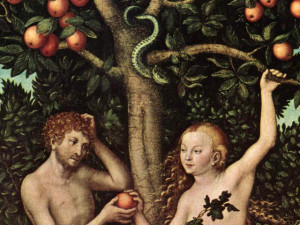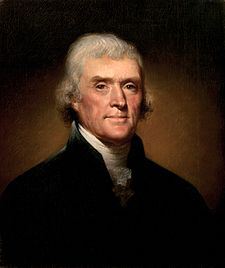 One of the so-called “Five Points of Calvinism” is the doctrine of “irresistible grace” (gratia irresistibilis), also called “efficacious grace.” According to this doctrine, all those who genuinely turn, or convert, to God do so because God gives to them a new holy nature (regeneration) and the gift of faith, so that they cannot but repent of their former life of sin and turn to a life of walking with God (from which they cannot ever depart). Apart from this “irresistible grace” of God, it is impossible for a person to turn to God. That is to say, only if God regenerates a person and gives them faith can the person convert to God; and the person will irresistibly convert to God when so regenerated and given faith.
One of the so-called “Five Points of Calvinism” is the doctrine of “irresistible grace” (gratia irresistibilis), also called “efficacious grace.” According to this doctrine, all those who genuinely turn, or convert, to God do so because God gives to them a new holy nature (regeneration) and the gift of faith, so that they cannot but repent of their former life of sin and turn to a life of walking with God (from which they cannot ever depart). Apart from this “irresistible grace” of God, it is impossible for a person to turn to God. That is to say, only if God regenerates a person and gives them faith can the person convert to God; and the person will irresistibly convert to God when so regenerated and given faith.
If this doctrine is true, then apparently God does not know it. Apparently he is not a Calvinist. For in the famous parable of the vineyard, recorded in Isaiah 5.1-7, God complains about the wickedness of the Hebrew people (the vineyard), asking, “What more was there to do for my vineyard that I have not done for it?” (v.4). Well, if Calvinism is true, then there was a lot more God could have done for the people. He could have given them “irresistible grace”! He could have regenerated them and given them faith. In point of fact, only if he gave to them this irresistible grace could they have become a vineyard that bore good fruit, rather than wicked fruit (v.5). So what is God complaining about? Continue reading
 According to the Book of Genesis, after God created the first human beings, Adam and then Eve, he issued a specific command that they should not eat from “the tree of the knowledge of good and evil” (Genesis 2.17a). And he affixed to this command a sanction that should they disobey the command, then on that day they would “surely die” (Genesis 2.17b). The narrative then goes on to tell the story of how Eve, tempted by a speaking serpent, chose to disobey God’s command by eating of the fruit of the tree of the knowledge of good and evil (Genesis 3.1-6a). Moreover, we are told that Eve gave of the fruit to Adam, and he too then ate and thus disobeyed God’s command as well (Genesis 3.6b).
According to the Book of Genesis, after God created the first human beings, Adam and then Eve, he issued a specific command that they should not eat from “the tree of the knowledge of good and evil” (Genesis 2.17a). And he affixed to this command a sanction that should they disobey the command, then on that day they would “surely die” (Genesis 2.17b). The narrative then goes on to tell the story of how Eve, tempted by a speaking serpent, chose to disobey God’s command by eating of the fruit of the tree of the knowledge of good and evil (Genesis 3.1-6a). Moreover, we are told that Eve gave of the fruit to Adam, and he too then ate and thus disobeyed God’s command as well (Genesis 3.6b).  reveals his religious sentiments, pulling no punches about his revulsion to Calvinism and the trinitarian dogma (he calls it “tritheism”). In the course of the letter, he also endorses the teleological argument, or argument from design, making a rather eloquent presentation of the argument. Agree or disagree with the views he expresses (I disagree with his denial of the virgin birth of Jesus), the letter is a fascinating piece by any account. What strikes me most is the vehemence of his denunciation of Calvinism and that simply a mere mention of Calvin’s name from Adams (in his previous letter to Jefferson), and not even in a theological context, was enough to set Jefferson off into such a denunciation. Adams had only quoted Calvin’s exclamation to God during his infirmity late in life as a fitting expression of Adams own feeling toward the infirmity that beset him at the time he wrote the letter to Jefferson.
reveals his religious sentiments, pulling no punches about his revulsion to Calvinism and the trinitarian dogma (he calls it “tritheism”). In the course of the letter, he also endorses the teleological argument, or argument from design, making a rather eloquent presentation of the argument. Agree or disagree with the views he expresses (I disagree with his denial of the virgin birth of Jesus), the letter is a fascinating piece by any account. What strikes me most is the vehemence of his denunciation of Calvinism and that simply a mere mention of Calvin’s name from Adams (in his previous letter to Jefferson), and not even in a theological context, was enough to set Jefferson off into such a denunciation. Adams had only quoted Calvin’s exclamation to God during his infirmity late in life as a fitting expression of Adams own feeling toward the infirmity that beset him at the time he wrote the letter to Jefferson.